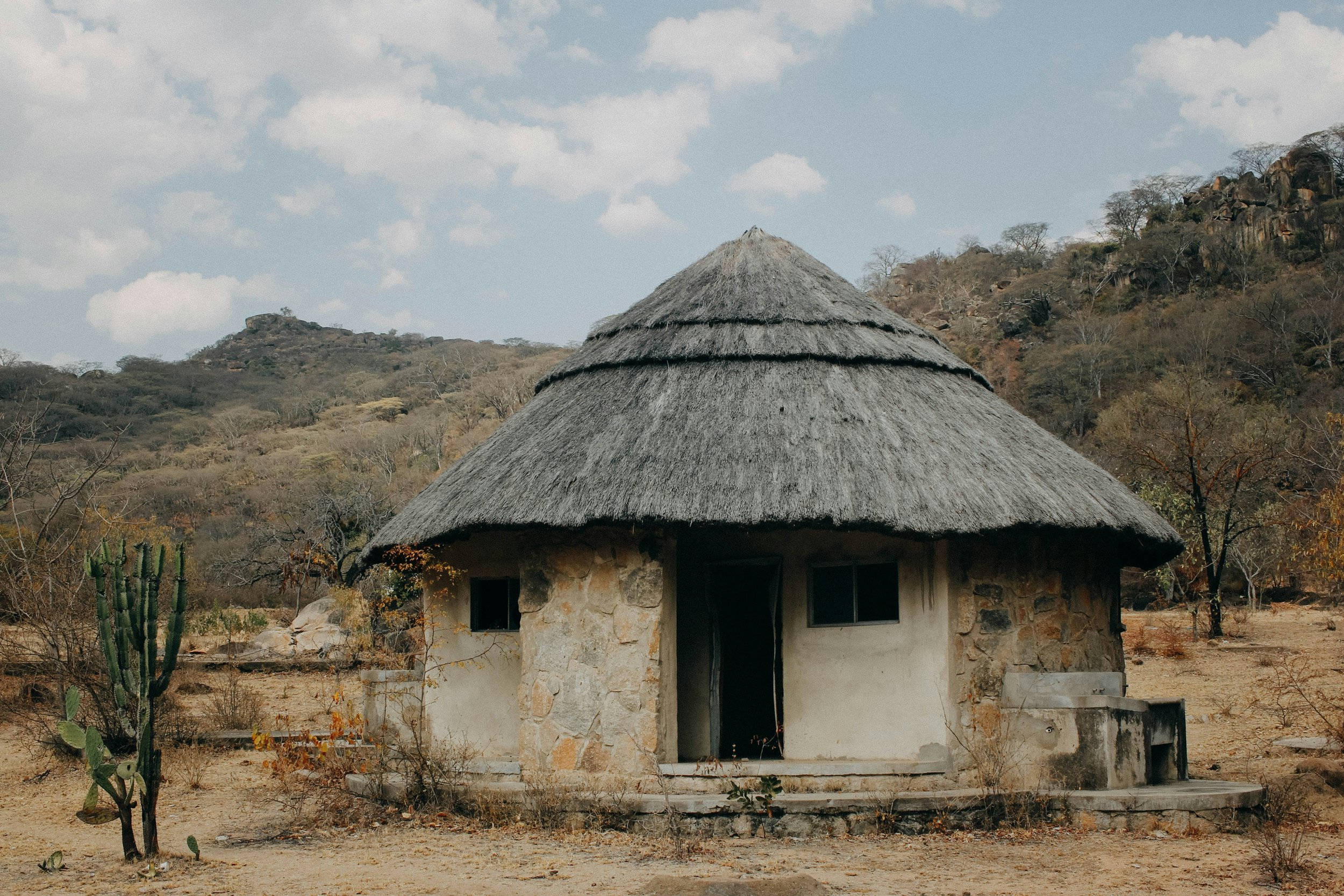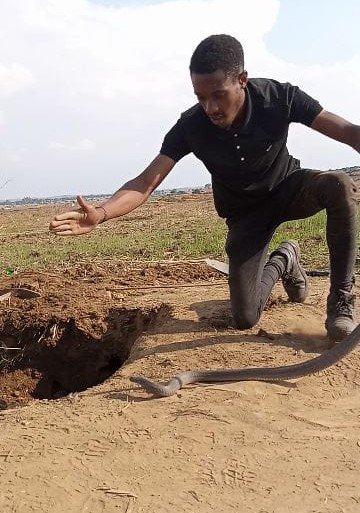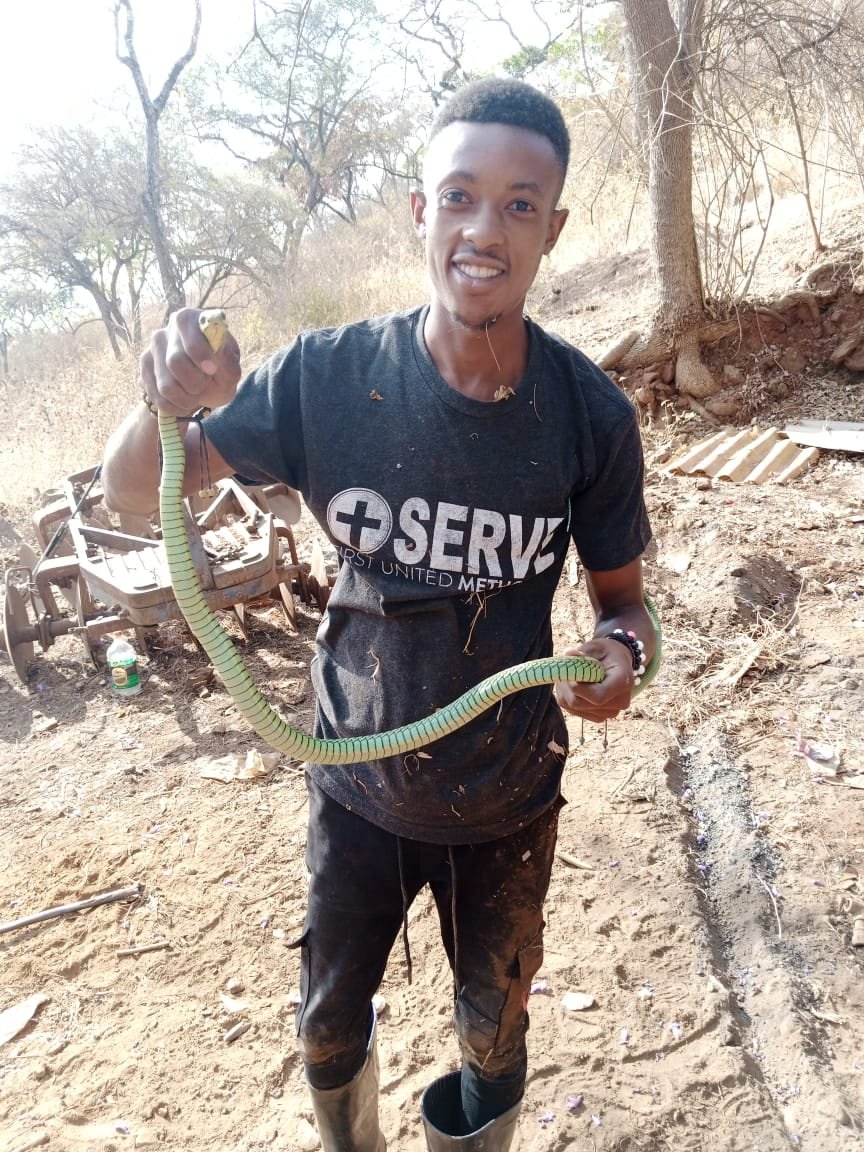Harvesting Black Mambas with Bare Hands - A Case of Saving Snakes in Zimbabwe.
Joshua Van-deer. unsplash.com
The mere mention of snakes brings shivers to many people in African communities, as they are associated with witchcraft, amputations and death.
Snakes are the most unwanted guests in many Zimbabwean homes. However young black self-taught snake catchers have defied the odds and continue to prove that man can be a friend to nature and co-exist with wildlife.
While others are scared of snakes, Simon Shoriwa is using his biological hands to catch the most venomous snakes in Zimbabwe and saving people from snakebite envenomation.
Mr Shoriwa was recently spotted catching a highly venomous black mamba and snouted cobra snakes using his bare hands.
Black mamba and Snouted Cobras possess neurotoxic and cytotoxic venom, requiring medical attention once a victim is bitten. Bites of black mamba are fatal in most African countries as they cause breathing difficulties within a short period of time (30 minutes approximate time).
This has led many people to fear snakes with great trepidation.
Speaking with this reporter Mr Shoriwa, he narrated that he has caught over 400 highly venomous snakes from the period of 2017 to 2023 using his bare hands and locally available resources like sticks due to the prohibitive costs of snake tongs and hookers.
“I started handling non-venomous snakes using sticks with hesitation, then after that, I started to freely handle them. After catching non venomous snakes, I began catching venomous snakes. I had now gained confidence. I have caught more than 400 venomous snakes so far.”
Professional snake catchers catch venomous snakes like black mamba using snake hooks, and tongs around the globe with few free handling them. Mr Shoriwa, a self- taught snake catcher has set tongue wagging amongst the Zimbabwean community with some accusing him of allegedly practising black magic and juju (traditional rituals involving indigenous medicine).
“People in my surburbs are surprised when they see the way I catch snakes, sometimes I catch them with my bare hands, and I can just go there without tools. They watch people catching snakes on TV with tools and everything, but surprisingly they see me coming empty handed. Then I will catch them with my hands, or sometimes use anything available at that moment as a tool. The way I do my things; people say I have got juju, I have black magic but it's not about black magic, it’s all about your skill, knowledge and everything. Thus how I modified myself to become a snake catcher. It’s about your strength of nerve,” (sic) Shoriwa narrated.
Catching snakes has reduced snakebite envenoming amongst the disadvantaged communities in Zimbabwe. According to the World Health Organisation (WHO) “Snakebite envenoming is a neglected tropical disease that afflicts people living in poverty,” hence the efforts made by snake catchers such as Mr Shoriwa is a shot in the arm.
WHO states that, “an estimated 1.8–2.7 million people worldwide are envenomed annually?” Getting accurate statistics for people bitten by snakes in Southern Africa is a mammoth task as there are no updated figures. Ministry of Health and Child Care, Provincial Medical Director for Bulawayo Metropolitan Province, Dr Maphios Siamuchembu stated that snake bite statistics were not often updated. However a South African snake expert and Chief Executive Officer of African Snakebite Institute Johan Marais, highlighted that snake bites are a cause of concern in Southern Africa with neighbouring countries such as South Africa experiencing fatalities of 10 to 12 per year.
Southern African countries experience shortage of polyvalent and monovalent antivenom for treating snake bites. Mr Marias added that, “we have had a severe shortage for close to 8 months. The antivenom is made by the South African Vaccine Producers (www.savp.co.za). The private sector rarely manufactures antivenom as it is a product that is not very profitable. The WHO does not make or supply antivenom.”
Catching snakes was historically a hobby for white people in many parts of Zimbabwe. Most African families associate snakes with witchcraft and bad omen leading to their instant and rampant killing. Another snake catcher based in Mutare, Mr Didymus Ncube explained that,
“It was a taboo to have a particular interest in snakes. Snakes have been traditionally associated with witchcraft practices. People who practise witchcraft have one or two snakes most probably.”
A traditional healer Mr Sifanekiso Ncube based in Bulawayo (Zimbabwe’s second largest city) highlighted that he has noticed that some traditional healers use snakes in their charms as a method to instil fear amongst gullible people and parade their so called “powers.”
“Zikhona inyanga ezisebenzisa inyoka. Uyathola umuntu elenyoka abantu bayazesaba inyoka. Ngakho uyahamba esethusela abantu efuna lokudla izifuyo zabo.” (There are some traditional healers who use snakes in their traditional medicines. The majority of people are scared of snakes hence using snakes can demonstrate prowess enabling them to reap people of their livestock).
Few people keep venomous and non- venomous snakes in Zimbabwe, unlike in other countries such as South Africa. Mr Ncube also added that snake catching was part of venom milking:
“The processing of antivenom which is the reason for milking venom is so scientific, so expensive, here in Zimbabwe we do not have a venom farm. The nearest venom farm is in South Africa, I don’t know if there is one or a couple in North Africa. In Sub Saharan Africa there is only one laboratory that does that which is in South Africa. Here in Zimbabwe it’s useless to milk venom, you can’t store it, or transport it to South Africa, nobody does it. I have done it before just to learn how it is done (venom milking).”
Zimbabwe Parks and WildLife Management Authority(ZIMPARKS), an organisation responsible for wildlife in Zimbabwe has in the last couple of years encouraged citizens to consider snake farming and reptile parks as another commercially viable option to create much needed employment. However, this was met with some mixed reactions from community members who still perceive snakes as an enemy to humans as highlighted in the Holy Bible. Zimbabwe is a Christian country with the majority of its population subscribing to the negative doctrine that snakes brought untold sufferings to humans due to its cunning ways.
Quizzed on how he has mastered the skill of using his bare hands and sentiments from local authorities, Mr Shoriwa stated that:
“Some of the local authorities get so so surprised with the way I catch snakes with my bare hands, and it's something they all say is new to them as they never saw someone who could do it with bare hands the way you do, that's what they say, and they now know that it's a special skill that I developed in myself, but some of them get so worried about it and find it dangerous, but to me it's just something I can do all the time. Sometimes when I get called to catch snakes I just leave my tools and just go. I have also noticed that anything can be a tool to catch a snake; with a small stick I can just pin the snake behind the head, and I can just grab the snake behind its head with bare hands. Anything I feel like I need to do, I can just do it that way.”
After catching venomous snakes, Mr Shoriwa relocates them to the forest far away from human settlements.
Harvesting black mambas with bare hands have enabled Zimbabwean snake catchers to participate in a drive of attaining Sustainable Development Goals (SDG) number 15 which looks at protecting and reducing extinction of species such as snakes. Snake Catching is a double edged sword continuing to save the snakes which play an important role in rodent population and reducing their dangerous bite.
Snakes are encroaching into human settlements in search of food and shelter. Human development destroys their natural habitats, leaving them without any option but to seek refuge within people’s homes.
The most common venomous snakes that like human settlements are cobras and puff adders, and these count for many snake bite victims in Zimbabwe. Snakes such as Mozambican spitting cobra are notorious for biting people when they are asleep at night.
It is high time the Zimbabwean community embraced nature and desist from unwarranted killing of snakes which play an important role in the ecosystem. Actions done by people such as Mr Shoriwa and other snake catchers are important in conscientising local communities. Their efforts continue to demystify myths associated with snakes in many African communities.
N.B Free handling snakes is a dangerous activity conducted by highly skilled professional snake catchers hence readers are advised not to attempt this at home.




